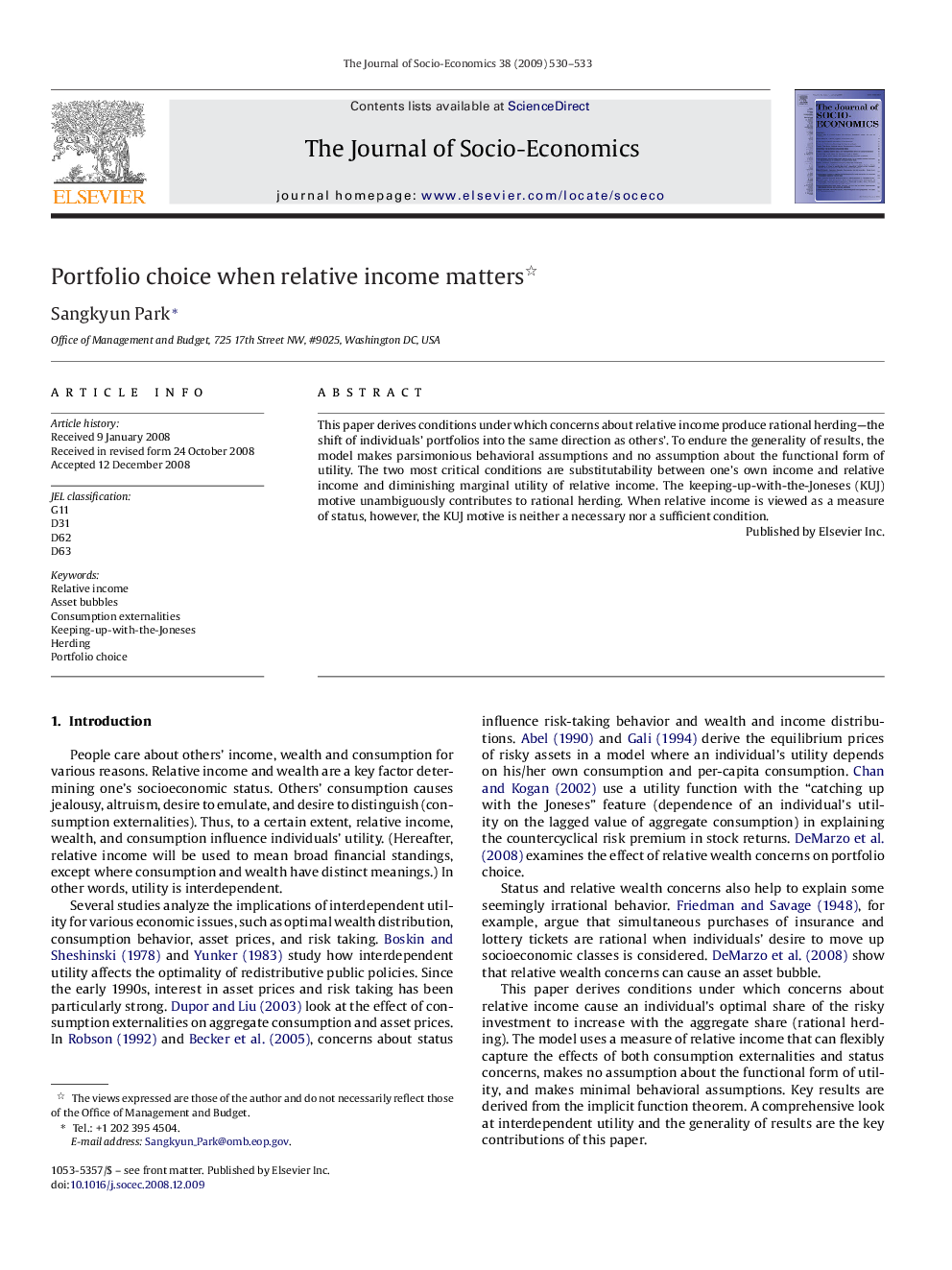| Article ID | Journal | Published Year | Pages | File Type |
|---|---|---|---|---|
| 971040 | The Journal of Socio-Economics | 2009 | 4 Pages |
Abstract
This paper derives conditions under which concerns about relative income produce rational herding—the shift of individuals’ portfolios into the same direction as others’. To endure the generality of results, the model makes parsimonious behavioral assumptions and no assumption about the functional form of utility. The two most critical conditions are substitutability between one's own income and relative income and diminishing marginal utility of relative income. The keeping-up-with-the-Joneses (KUJ) motive unambiguously contributes to rational herding. When relative income is viewed as a measure of status, however, the KUJ motive is neither a necessary nor a sufficient condition.
Related Topics
Social Sciences and Humanities
Economics, Econometrics and Finance
Economics and Econometrics
Authors
Sangkyun Park,
